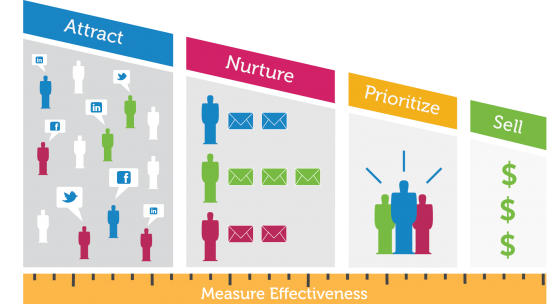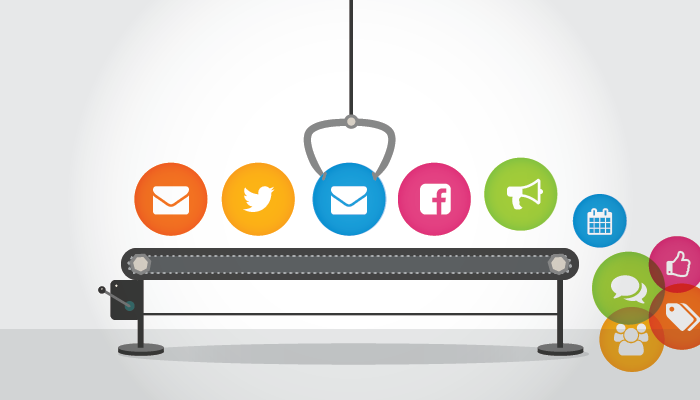Marketing Automation
The Silver Bullet Syndrome: Why Marketing Automation Is Not Enough
Sending the right message to the right people, at the right time, and in the right way is the bedrock of good digital marketing. Unless your prospects value what you say, any attempt to engage and convert them is likely to fail.
Segmenting your prospects using the right variables allows small business owners to target their audience with relevant messages. The more targeted your message is, the more likely you are to see an increase in conversion rates.
3 Crucial Problems and One Big Fat Lie with Marketing Automation
This is a story you might know all too well. You’ve been told that marketing automation can solve a lot of your problems. You thought it would bring you a seemingly endless flow of prospects who’d convert into loyal customers. You thought it would help you save time, grow your small business, and put your online marketing efforts on autopilot.
5 Marketing Automation Hacks You Should Be Using Right Now
It sounds so easy…
You know marketing automation can help you scale your local business. You know you should invest in smarter tools to ensure your prospects receive the right message at the right time. So you start implementing a solution that you think can meet your online marketing needs best.
Two weeks later, you’re still fiddling with automation rules and workflows.
Think You Don’t Need Marketing Automation? Think Again! 10 Stats to Prove It Isn’t Just a Fad
How can your local business compete with the big boys?
That’s simple. You automate.
You know you should invest in smart tools that can help you turn prospects into customers. You know marketing automation can help you reach out to your prospects effectively, personalize your online marketing efforts and maximize your bottom line. As a small business owner, you’ve probably seen others using automation with great results. And, while you recognize marketing automation’s potential, you might still have some reservation.
5 Scary Marketing Automation Techniques that Are Worth the Risk
Do you know what the biggest killer of productivity is?
No, it’s not procrastination.
It’s fear.
Case and point: marketing automation.
Recipe for Failure: 7 Marketing Automation Mistakes that Will Cripple Your Business
You may not realize this, but people fully automate most aspects of their lives. Take your wardrobe as an example. You probably have a system put in place that shaves a few extra minutes off your mornings. Automation is a great way to scratch an itch.
The same holds true for automating a small business marketing. If used correctly, automation can help you optimize your marketing programs, adding value to your customers’ life and boosting your business. A recent study showed that 63% of companies that surpass their competitors use marketing automation. More than that, businesses that use automation get up to 53% more conversion rates.
How to Use Automation to Build Real Relationships at Every Stage of the Funnel
You must look at the sales funnel as a journey. This journey is made up of multiple campaigns that work hand in hand to earn leads and sales for your small business. These campaigns work together to build relationships with your prospects and to turn strangers into friends, friends into customers, and customers into loyal fans.
It sounds overly complicated, right?
Email Video Incorporation: The Marketing Automation Advantage No One Is Using
Love it or hate it, email marketing is still a powerful tool for business. It informs your leads about new products, services, or deals that are relevant to their needs so that they can move down the sales funnel. Unfortunately, in the era of 8-second attention spans, getting prospects to notice your email, let alone interact with it, is harder than ever.
5 Quick and Easy Marketing Automation Recipes for Better Lead Nurturing
When it comes to building your readers’ loyalty and interest, there is probably not much you wouldn’t do – because let’s face it, it is what makes your work go round. But to truly implement the most efficient ways to do so, you might want to consider the power of marketing automation – your new best friend in Marketing Strategy Town.
Friend or Foe: Is Automated Marketing Saving You Time or Hurting Your Business?
Online marketing is such a complex and diverse work that introducing marketing automation tools is a smart way of easing the process and making it more efficient and qualitative. Needless to say – it’s not as easy as just doing it. There’s a time when marketing automation can be of huge help, and there’re times when it might actually be causing you more trouble than anything.












